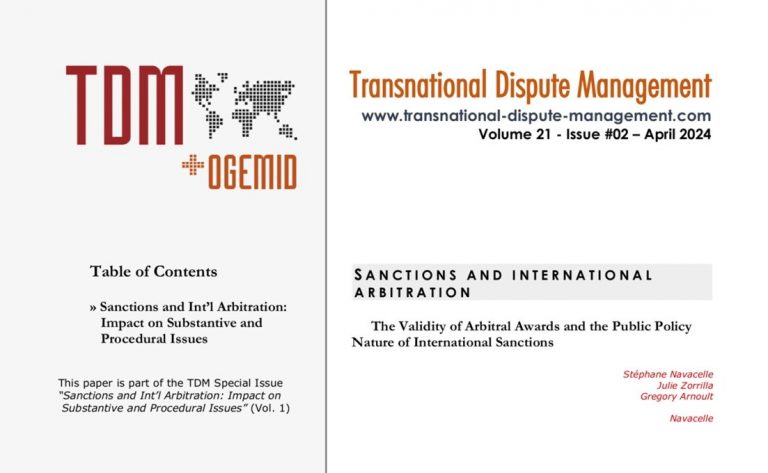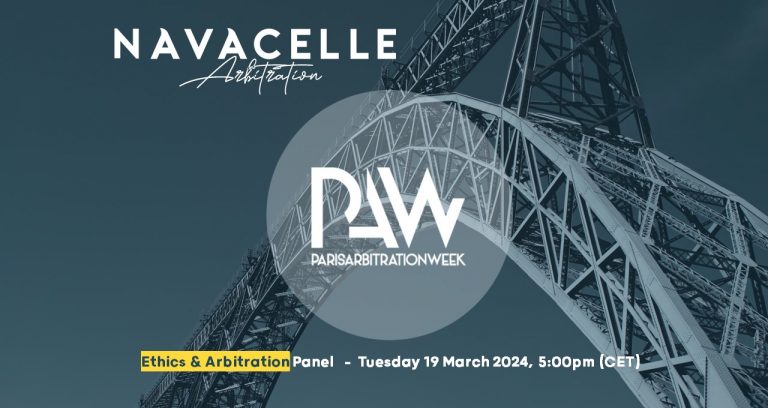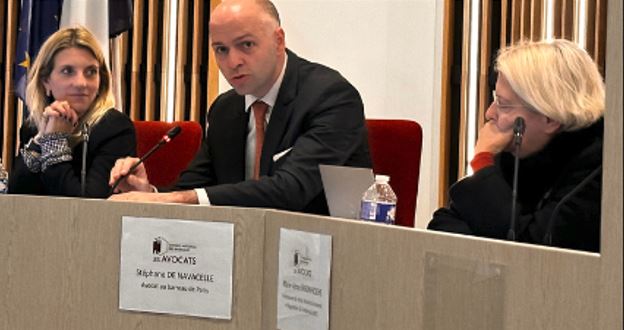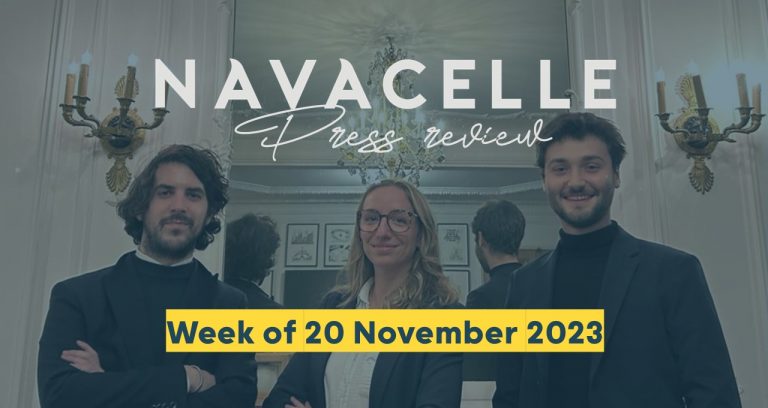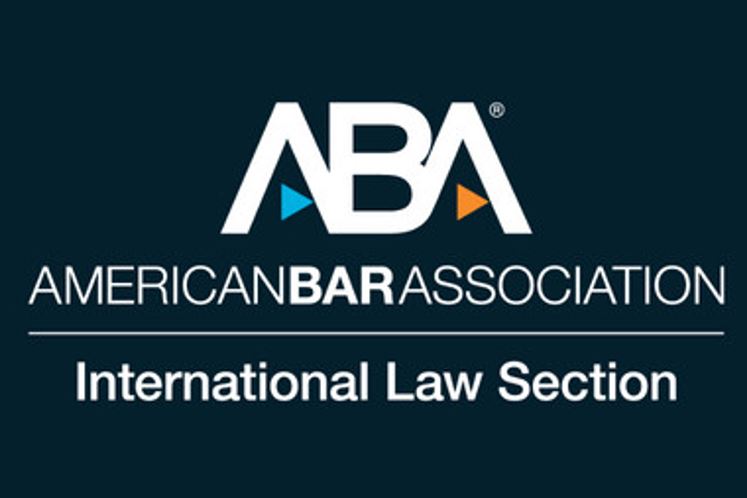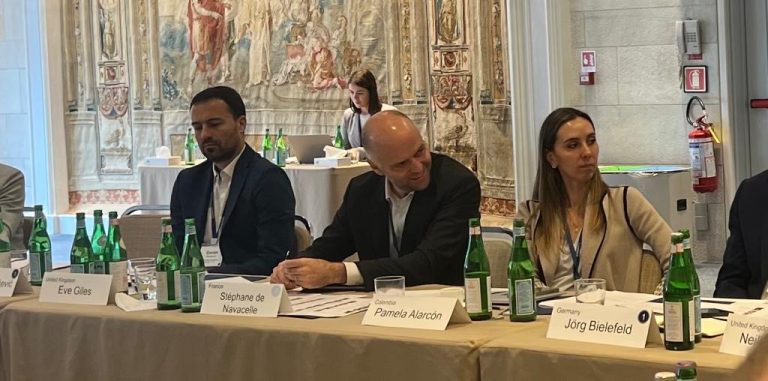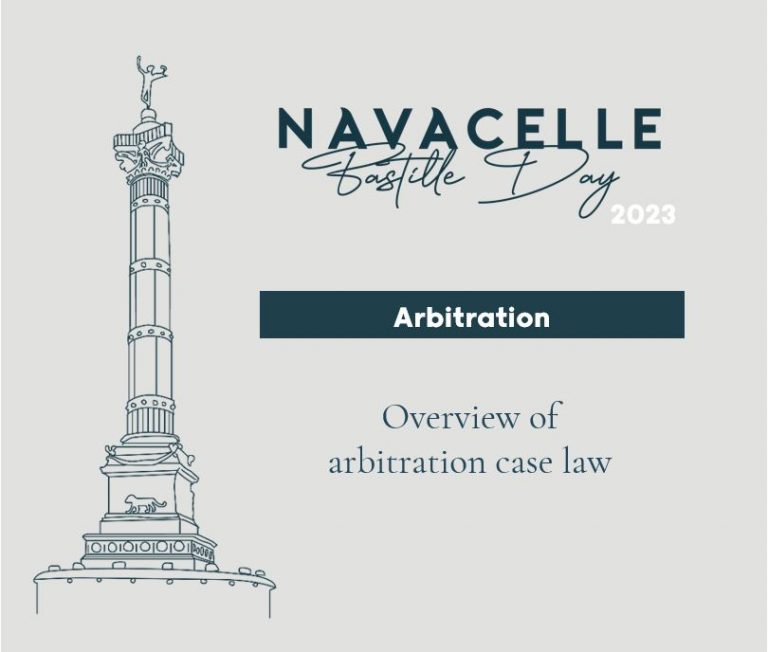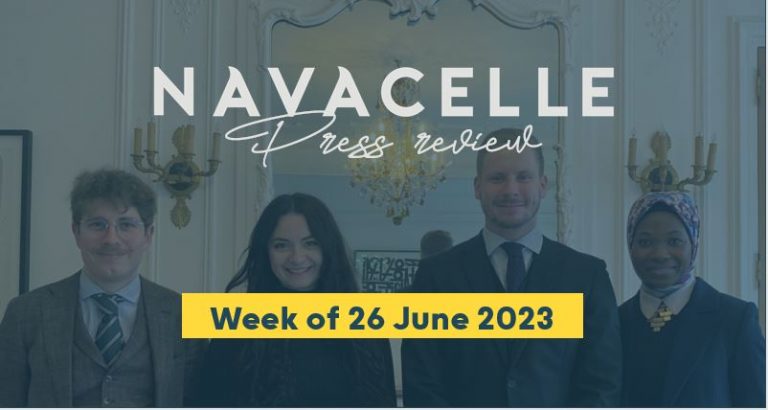On 14 March 2023, the Versailles Court of Appeal confirmed the Paris Tribunal’s (le Tribunal de Grande Instance de Paris, now Tribunal Judiciaire) 30 March 2016 order, which granted exequatur to the Arbitral award rendered on 29 January 2016, in a case opposing the French company Alstom Transport SA, the English company Alstom Network UK Ltd. (hereinafter “ALSTOM”), and the Hong Kong base company Alexander Brothers Ltd.
This decision, which is the conclusion of a lengthy judicial process throughout which Alstom had the exequatur of such award in France would be contrary to public policy on the basis of allegations of corruption (I), dismisses Alstom’s arguments based on international public policy (II).
I. The Versailles Court of Appeal issued its decision following referral from the Court of Cassation, ending a lengthy legal battle
The ABL v. Alstom case, concerned three consultancy agreements (hereinafter “the Contracts”) entered into by two Alstom subsidiaries(hereinafter “ALSTOM”) and a Chinese company Alexander Brothers (hereinafter “ABL”) pursuant to which ABL had to assist ALSTOM in tendering for railroad equipment in China.
On 20 December 2013, ABL initiated an arbitration proceedings against ALSTOM as they failed to pay the full amount due under these Contracts even though ALSTOM won all the tenders for which the consultant agreements had been signed. To refuse to pay the outstanding sums due, ALSTOM alleged that there a criminal risk as these payments may have been used to bribe public officials.
By an arbitral award rendered on 29 January 2016 (hereinafter “the award”), the arbitral tribunal rejected Alstom’s defense in which it argued that it had grounds to suspect corruption by ABL and ordered ALSTOM to pay EUR 1,700,521.68 to ABL under the first two consultancy contracts. The arbitral tribunal found that ALSTOM failed to provide sufficient evidence to support its corruption allegation and that mere suspicions were not enough to release them from their contractual obligations.
ALSTOM subsequently tried to set aside the award, but on 3 November 2016, the Swiss Federal Court approved it.
Meanwhile, ABL initiated judicial enforcement of the award in the United Kingdom and France. Both the UK and France granted the order for enforcement. However, ALSTOM challenged the decision (in France appeal was brough on 18 May 2016) claiming that the arbitral award violated international public policy due to corruption allegations against ABL and did not respect the principle of adversarial proceedings.
The High Court of London rejected ALSTOM’s appeal and confirmed the enforcement order, however in France in a judgment rendered on 28 May 2019, the Paris Court of Appeal upheld ALSTOM’s appeal and rejected ABL’s motion to enforce the award, as it found that ALSTOM had brought serious, precise, and consistent evidence of corruption in the performance of the underlying contracts and that the sums paid under the award might be used to finance bribery and thus, enforcement of such award in France would be contrary to public policy.
ABL petitioned the French Supreme Court (hereinafter “Cour de cassation”) which ruled on 29 September 2021 that the Paris Court of Appeal erred in its analysis of the proof necessary to establish corruption as it distorted the evidence submitted to it by misinterpreting the transcripts of the arbitral hearing. Therefore, the Cour de cassation referred the case to the Versailles Court of Appeal.
II. The Versailles Court of Appeal’s dismissal of ALSTOM’s arguments put forward to overturn the enforcement order
The Versailles Court of Appeal, after carefully studying the parties’ arguments, rejected ALSTOM’s request to set aside the enforcement order of the arbitral award. The Court of Appeal found that the arbitral award did not violate international public policy as ALSTOM did not provide sufficient evidence to support its corruption claim (A), that the award is not contrary to international public policy insofar as they are inconsistent with ALSTOM’s internal rules (B) and that there is no violation of the principle of adversarial proceedings (C).
A. The lack of a material violation (“violation caractérisée”) of international public policy due to the absence of corruption evidence
ALSTOM challenged the enforcement order of the award by arguing that there was circumstantial evidence of corruption in the performance of the underlying contracts and that the sums paid under the award might be used to finance bribery and thus, the exequatur of such award in France would be contrary to public policy. In contrast, ABL requested the Appeal Court confirm the enforcement order considering the absence of a serious breach of international public policy in case of enforcement and as according to ABL, ALSTOM failed to establish sufficient serious, precise, and consistent evidence of corruption.
The Versailles Court of Appeal carefully analyzed one by one, the eight indicia presented by ALSTOM to support its corruption claim.
First, regarding the argument that there was a lack of sufficient proof of services provided by ABL, the Versailles Court of Appeal found that the evidence of services provided for two of the contracts was enough to demonstrate that ABL provided actual services to ALSTOM under both contracts. Its decision was in line with the arbitral tribunals position which had found that evidence was not enough for the third contract in dispute. However, the Versailles Court of Appeal held that the lack of proof of service under contract. No. 3 was not sufficient to be considered as a corruption red flag (“indice de corruption”).
Secondly, regarding ALSTOM’s claim that ABL’s holding of allegedly sensitive or confidential documents and information regarding tenders constitutes evidence of corruption, the Court of Appeal held that ALSTOM did not have evidence to suggest that ABL obtained these documents in exchange for bribes, advantages, or unfair practices. In addition, the Court found that ABL provided sufficient evidence and explanations for the origin of all the documents (except for one evaluation report). In addition, the Versailles Court of Appeal stated that ABL had up until the start of the arbitral proceedings always accepted to explain the origin of the different documents it possessed.
As a third corruption indicia, ALSTOM argued that the payments made for the tenders at issue, in 2006 and 2009 of EUR 280 589.20 by ALB to Sitico, an import agent for the Chinese state-owned company (that is also a client of ALSTOM), constitutes evidence of corruption. ALSTOM alleged that ALB made these payments without its knowledge and that it discovered them in 2013 during an audit, while ABL explained that it made these payments hat these payments were made under a service contract signed by ABL and Sitico that is unrelated to the present dispute. After reviewing the evidence, the Versailles Court of Appeal these payments were made in execution of a third-party contract between ABL and Sitico providing for consultancy services of which Alstom was fully aware and that Alstom was therefore ill-founded to consider these payments as evidence of corruption.
ALSTOM also put forward as a potential evidence of corruption that the attribution of the contract for line 2 of the Shanghai metro to Alstom its technical bid was less well-rated. In this respect, and considering the evidence provided, the Versailles Court of Appeal found no evidence that ABL had used corrupt methods to convince the public buyer of attributing such contract to ALSTOM.
Moreover, ALSTOM argued that there were irregularities and deficiencies in ABL’s accounting system, making it impossible to verify the nature and destination of the financial flows and mitigate and prevent illicit payments. However, after considering the audits and the various evidence provided (in particular he testimony of the accountant and the report of ABL’s CAC), the Versailles Court of Appeal found that ABL’s accounts did not contain any irregularities or shortcomings which would constitute evidence of corruption.
Regarding the sixth corruptive evidence alleged by Alstom, the Versailles Court of Appeal concluded that the supposed insufficient material and human resources alleged by Alstom had not been established.
In addition, ALSTOM also argued that there was a disproportion between ABL’s services, and the compensation claimed under the consultancy agreements. However, the Versailles Court of Appeal considered that the percentages in relation to the very high contract value and the time it took to complete the contract were in line with international standards. Therefore, ALSTOM’s disproportion claim was unsupported.
Finally, ALSTOM alleged the Chinese corruptive context and the heavy convictions of public officials in office during the period of award and execution of the contracts to support its corruption claim. The Versailles Court of Appeal recalled that the government of the People’s Republic of China had been conducting an anti-corruption campaign since 2013 and did not convict ABL or any of its members for corruption or any other breach of probity. The Versailles Court of Appeal added that the conviction of public officials in China unrelated to ABL is insufficient to constitute a serious and specific corruption red flag.
Thus, the Versailles Court of Appeal found that none of ALSTOM’s eight red flags put forward to support its corruption claim, even taken together, could qualify as sufficiently serious, precise, and consistent evidence of corruption. Therefore, the Versailles Court of Appeal concluded that the execution of the arbitral award in France was unlikely to result in corrupt payment and consequently would not infringe the French public policy.
B. On the violation of ALSTOMS’s internal rules, the Versailles Court of Appeal rejected ALSTOM’s claim
To overrule the exequatur order, ALSTOM alleged that enforcing the arbitral award violated its internal anti-corruption rules, by which it must abide by, and thus would be contrary to the French conception of international public policy.
However, with regard to this argument, the Versailles Court of Appeal specified that it would only examine the admissibility of the enforcement of an arbitral award with respect to the French concept of international public policy on the basis of the applicable international legal, legislative and regulatory standards, and not on the basis of the internal rules of compliance unilaterally set by a company. Consequently, the argument raised by Alstom was rejected.
C. The Versailles Court of Appel did not find any violation of the principle of adversarial proceedings (“principe du contradictoire”)
Finally, in its last claim, ALSTOM maintained that the arbitral award violated the principle of adversarial proceedings as the arbitral tribunal relied on the “real and common intention of the Parties” in its decision. The Versailles Court of Appeal rejected ALSTOM’s argument, founding that it failed to demonstrate that the arbitral tribunal issued the arbitral award in violation of the adversarial principle.
Accordingly, the Versailles Court of Appeal affirmed the lower court’s judgment of 30 March 2016, granting the enforcement of the arbitral award of 29 January 2016, between the parties and dismissing ALSTOM’s claims.



